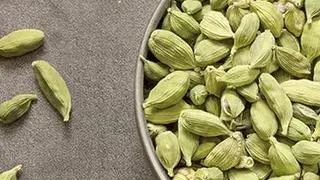Even as the declining trend continues in cloves prices, reduction in import duty coupled with strengthening of the rupee against the dollar, have aided prices to fall further in the domestic market, according to trade sources.
“According to the Africa-India trade agreement, duty on cloves from Madagascar, Zanzibar, Comoros, will be only four per cent from October. So, prices will further come down as duty reduces and that will in turn, boost legal trade”, market sources said.
Declining prices said to have prompted import of 1,450 tonnes of cloves during July-September from Madagascar and the consignments are on the way to India, according to upcountry market sources.
“Out of 1,450 tonnes, 1,200 tonnes are yet to arrive any moment and will be under clearance. All cargoes are from Madagascar and Comoros origin. The Madagascar cloves are at $8,000-8,500 a tonne, import sources said.
At $8,000 a tonne, the landed cost would come to around Rs 430 a kg and, hence, the market would crash and arrest of any such possibility would depend on Indonesian Cigar company’s buying interest which is unlikely to happen given the present indications, they claimed. “Already Indian cloves markets are in panic mode with prices falling to Rs 650 a kg from Rs 750 in 2 tracings”, they said.
Added to this is the rise in global cloves output this year, they said.
Global output
Total production this year, according to trade estimates, in various producing countries except Indonesia, is 30,000 tonnes with a break up of: Madagascar 15,000 tonnes; Comoros 3,000 tonnes; Zanzibar 3,000 tonnes; Sri Lanka 4,000 tonnes and Brazil 5,000 tonnes.
Meanwhile, Indonesian crop size is estimated at 60,000 tonnes plus a small crop expected in January 2013.
“Indonesia will not only import but would also support local farmers by giving good price. So, the world markets will soon fall due to lack of demand, while India has huge stocks”, they claimed.
When the prices were ruling above $15,000 a tonne, many Indian dealers who were holding stocks, imported at lower rates and shipped them out at higher prices. Then the depleted inventory was replenished with material bought later at comparatively higher prices.
Growers/traders/stockists in Nagercoil, who were not expecting the prices to fall and, hence, held back their produce, are also finding it difficult to cope with the current price trend, they said.
They said the low prices ruling at present are not remunerative given the high input costs. The fertiliser prices have gone up substantially and similar is the case with other inputs including labour cost, they said.
“Last year from January, markets climbed up from $4,000 a tonne to $21,000 a tonne following failure of the June crop in Indonesia. But, its December 2011 crop turned out to be good and that in turn started pulling down the prices, they added.







Comments
Comments have to be in English, and in full sentences. They cannot be abusive or personal. Please abide by our community guidelines for posting your comments.
We have migrated to a new commenting platform. If you are already a registered user of TheHindu Businessline and logged in, you may continue to engage with our articles. If you do not have an account please register and login to post comments. Users can access their older comments by logging into their accounts on Vuukle.